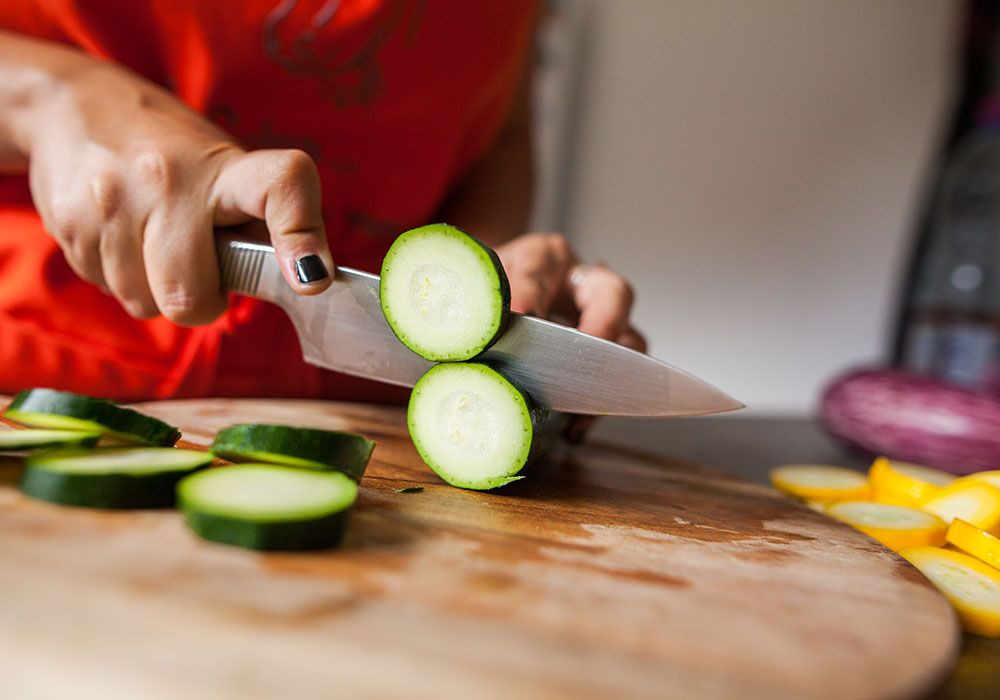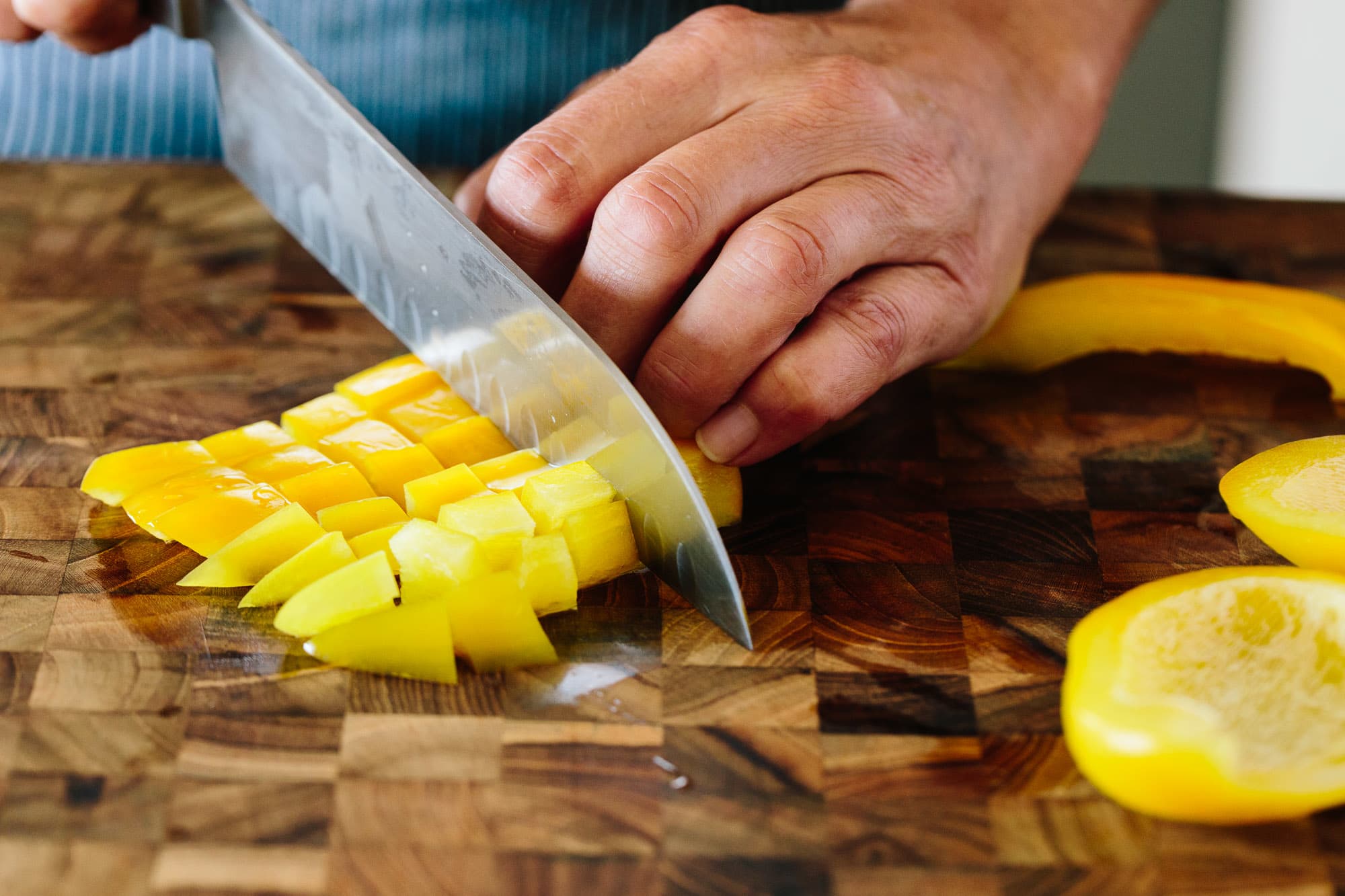When it comes to running a professional kitchen, maintaining proper hygiene is not just a preferenceit's an absolute necessity. This raises a vital question: which cutting board is most sanitary? Kitchen professionals understand that the cutting board is one of the most frequently used tools, making its cleanliness and material composition a key factor for maintaining food safety.
In this article, well explore the pros and cons of popular cutting board materials, highlight maintenance practices, and provide tips tailored specifically for those working in professional kitchens. If you care about preventing cross-contamination and adhering to health regulations, youre in the right place.

What Makes a Cutting Board Sanitary?
Sanitary cutting boards are those that resist bacterial buildup while remaining easy to clean and maintain. The material, maintenance routine, and usage frequency all play a role in determining a cutting board's cleanliness. Whether a board is wooden, plastic, glass, or bamboo, its ability to prevent contamination and withstand rigorous cleaning is crucial.
According to kitchen safety guidelines, three main factors define a cutting board's hygiene:
- Its porosity whether it absorbs liquids and bacteria.
- The ease with which it can be sanitized.
- How resistant it is to physical damage such as grooves where bacteria might collect.
Wooden Cutting Boards: The Professional's Favorite
Wooden cutting boards are preferred by many chefs for their aesthetic appeal, durability, and knife-friendly surface. But are they the most sanitary cutting boards? The answer isn't as straightforward as you might think.
Pros of Wooden Cutting Boards:
- Wood has natural antimicrobial properties that can kill bacteria over time.
- The dense wood fibers self-heal minor scratches, reducing bacteria hideouts.
- Available in elegant designs that complement any professional kitchen setup.
Cons of Wooden Cutting Boards:
- Tend to absorb moisture if not properly sealed, leading to bacteria growth.
- Maintenance is keyregularly oiling wooden boards is mandatory. For detailed instructions, check this guide.
Find out how to keep wooden cutting boards from splitting and prolong their lifespan.
Plastic Cutting Boards: The Easy-Care Option
Plastic cutting boards are another common choice due to their affordability and easy sanitation. However, they come with limitations that chefs should weigh carefully.
Pros of Plastic Cutting Boards:
- Dishwasher-safe, offering a quick cleanup solution.
- Resistant to water absorption, ensuring bacteria cannot penetrate the surface.
Cons of Plastic Cutting Boards:
- Prone to deep grooves from knives, which can harbor bacteria if not replaced often.
- Non-recyclable versions are less environmentally friendly.
If you'd like to know what types of cutting boards chefs use, you can get a detailed breakdown by clicking on this resource.
Glass Cutting Boards: Sanitary but Risky
Glass cutting boards are often touted as the most sanitary because they are nonporous and incredibly easy to clean. However, are they suitable for professional kitchens?
Pros of Glass Cutting Boards:
- Completely nonporous surface, making them 100% resistant to bacteria absorption.
- Simpler to clean than other materials as they dont stain or retain odors.
Cons of Glass Cutting Boards:
- Harsh on knives, leading to quick dulling of blades.
- Fragile and prone to breakage in busy kitchen environments.
Bamboo Cutting Boards: An Eco-Friendly Solution
Bamboo is praised for being both eco-friendly and durable. However, like wooden boards, bamboo's hygiene depends on proper maintenance.
Pros of Bamboo Cutting Boards:
- More water-resistant than traditional wooden boards.
- Natural hardness resists knife grooves effectively.
Cons of Bamboo Cutting Boards:
- No natural antimicrobial properties as seen with wood.
- Must be oiled regularly to prevent cracking and warping. Learn how to straighten warped cutting boards here.
Maintenance Tips for Every Kitchen Professional
Whichever type of cutting board you use, regular maintenance is essential for ensuring they stay safe and sanitary. Heres a checklist:
- Clean Immediately: Wash boards with hot, soapy water immediately after use.
- Sanitize Regularly: Use vinegar or hydrogen peroxide to kill bacteria.
- Avoid Cross-Contamination: Use separate boards for raw meats and other foods. Learn more from this helpful article here.
- Inspect Frequently: Check for deep grooves or cracks and replace boards if necessary.
FAQs About Cutting Board Hygiene
1. Which cutting board should I use for raw meat?
Plastic cutting boards are recommended for raw meat as they can be easily sanitized in a dishwasher, unlike wood or bamboo.
2. How do I prevent my cutting board from smelling?
To eliminate odors, clean your cutting boards with a paste of lemon juice and baking soda. For wooden boards, oiling them regularly can also help. For more tips, read this article.
3. Are glass cutting boards suitable for professional kitchens?
While glass cutting boards are easy to clean and very sanitary, they are not recommended for professional kitchens because they dull knives and are prone to breakage under heavy use.

Conclusion
Ultimately, the answer to which cutting board is most sanitary depends on how you use and maintain them. Wooden boards offer natural antimicrobial benefits, while plastic boards are easy to sterilize. Glass boards win in sanitation but lose in practicality, and bamboo serves as an eco-friendly middle ground.
No matter your choice, proper care and adherence to sanitary guidelines will ensure your cutting board is a safe tool in your professional kitchen. For additional tips and insights related to cutting boards, check out this useful guide.
This article contains affiliate links. We may earn a commission at no extra cost to you.






Leave a comment
This site is protected by hCaptcha and the hCaptcha Privacy Policy and Terms of Service apply.